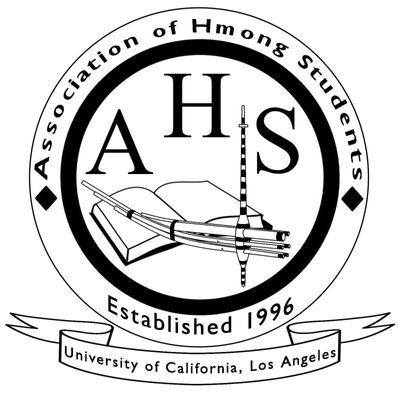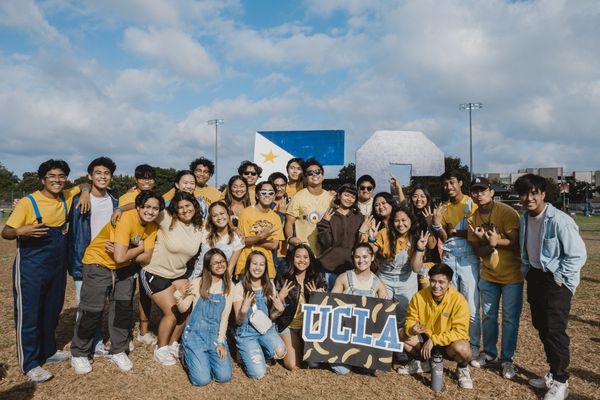
A strong, united APIDA community that continuously strives for the uplifting and empowerment of all its members,
addresses community issues within UCLA and beyond, represents and preserves the APIDA voice, and promotes equity
through sustainable leadership.
As the Asian Pacific Coalition at UCLA, we are dedicated to dismantling systems of racial oppression and striving
for collective liberation* through coalition building* with other communities of color. We see the effects of these
systems exacerbated by the COVID-19 pandemic, the 2020 elections, and the continued state-sanctioned violence*
against Black and Brown communities. In light of these trying circumstances, we are committed to creating programming
that challenges us to deconstruct our perceptions of society and that is digestible and relevant to all members of our
community, both returning and new. In doing so, we hope to continue the work of making our spaces more representative
of all Asian Pacific Islander Desi American (APIDA) narratives.

We, the Association of Hmong Students (AHS), provide a foundation of opportunities to assist students within and beyond UCLA.
Through the advocacy of a higher education, analysis of intersectionalities, and the holistic development of student leaders,
AHS cultivates a safe environment to empower students and nurture their Hmong identity. AHS upholds the voice of Hmong students
by advocating for the cultural, educational, and social welfare of the Hmong community.

Founded in 2020, the Association of Indonesian Americans (AIA) is an organization for Indonesian-Americans,
people of Indonesian descent, and people who are interested in the political, social, cultural, or educational
aspects of the Indonesian-American community in the United States.
Political - Our very existence is political due to our under-representation in many facets of American society.
As an organization we strive to educate our members through our internship program and general meetings of
the history of Indonesia and Indonesians in the U.S. We understand that history is a political tool and by
knowing our past, we can be grounded leaders in both the UCLA community and any communities we might find
ourselves in the future.
Social - An important aspect of any organization is connection. AIA is a place where everyone should feel
welcome to explore their culture and history without judgement. We work to have a socially vibrant community
of individuals where members feel safe to make friends and create memories.
Cultural - The Indonesian-American experience is interlocked with the cultural disconnect between one’s
identity as Indonesian and their identity as American. To understand our cultural identity, we focus on
sharing the work of Indonesian-American artists through speaker events and cultural history in general
meetings. This focus on culture assists our ability to intelligently discuss issues that our affect
the Indonesian-American community.
Educational - Education is important in comprehending one’s identity. To meet this goal, we host a
variety of guest speakers who are community leaders and scholars to share their experiences and
bodies of knowledge. Furthermore, student leaders in AIA work on presentations and activities for
our general meetings and internship program that explore Indonesian-American culture.

BURSA at UCLA aims to promote awareness of Myanmar (Burma) and build a community for students
who are Burmese or interested in Burmese culture.

The Malaysian Students Association at UCLA was founded in 2010 by a small group of friends who sought to create
a cultural student organization that would also serve as a home away from home for other Malaysians studying here at UCLA.
MAS UCLA has since grown rapidly, with over a hundred current members of diverse nationalities. We aim to promote
Malaysian culture to the wider UCLA community, provide a supportive and close-knit environment for all its members,
and connect current members with alumni and the rest of the UCLA community.
MAS UCLA is committed to enrich its members’ college experiences here at UCLA, doing so by organizing a wide range
of events and activities including cultural performances, festival celebrations, annual camping and ski trips, and
hangouts. With a strong leadership and driven committee, MAS UCLA is poised to grow and influence the club and its
members even more in the near future.

United Khmer Students is a student-run organization dedicated to fostering a positive environment for
Khmer students and Khmer culture at UCLA. The club serves to represent and be an active voice for the
greater Cambodian community and to advocate for its relevant issues. Due to the lacking representation
of Khmer people, UKS feels itself to be a necessary component within the UCLA community. UKS not only
provides a social environment for Khmer and non-Khmer students alike but works towards creating a politically
and culturally active space. The club is consistent with cultivating cultural education and traditions for
its general membership as well as providing leadership opportunities for members to be involved within their communities.
UKS understands the significance of higher education and its condition within the Khmer population;
Khmer Outreach Retention Education was created as an effort to combat low representation of Khmer-Americans
in higher education. Along with KORE, various events, and components, the Mentorship Program provides on-site tutoring,
field-trips and a mentor/mentee relationship for at-risk Cambodian youth at various LBUSD schools.
UKS is a resource for networking not only within the alumni and the UCLA community but also within the intercollegiate
realm of Khmer student organizations. UKS is an active component to the efforts of the Khmer Student Coalition (KSC),
a collective organization composed of various Cambodian organizations within the California universities and state
universities system. UKS strives to provide a positive college experience for students through social, cultural, and
political activities as well as being an advocate for Khmer community, culture and education.

Samahang Pilipino is a multi-faceted student organization which addresses the needs of the Pilipin@
and Pilipin@ American community at UCLA and the greater Los Angeles area.
Since 1972, Samahang Pilipino has been committed to addressing the five key aspects of Pilipino life:
cultural, social, political, academic, and community. Samahang also serves as a family away from home
and a bridge to our cultural roots.

As the only Thai organization on campus, the Thai Student Association aims to provide an
opportunity to bring together those interested in Thai Culture.
Serving the community since 1980, Thai Smakom (สมาคมไทย, pronounced "tie samakohm",
roughly translated as "Thai association/organization") seeks to increase visibility of
the rich Thai and Thai-American culture at UCLA, and we welcome everyone (undergraduate
and graduate students, alumni, etc) from any heritage and background, Thai and non-Thai alike.
As UCLA's Thai Club, we strive to provide Bruins with the experience and exposure of our Thai
culture through social events, education, community service, and our annual culture nights.

The Vietnamese Student Union (VSU), established in 1977, is the official voice of all Vietnamese students at
UCLA through its advocacy for the cultural, educational, political, and social welfare of the Vietnamese
community at large.
“The Vietnamese Student Union (VSU) at the University of California, Los Angeles strives to build a resilient
and empowered community that is committed to solidarity with other marginalized communities of color.
Though physically separated by the pandemic, we hope to create a safe and welcoming space where members may
be united virtually through community-conscious programs and projects that serve our needs at this time.
In light of the current political climate, we aim to promote civic engagement by equipping members with the
skills and resources necessary to advocate for our community’s needs while closely collaborating with other
communities in the fight for equity and justice.
By embracing our cultural heritage as well as our refugee and immigrant experiences, we will continue to shed
light on our unique Vietnamese culture and history both on and off campus.”





